Turkish authorities have appointed a government-controlled trustee to take over management of TELE1, one of the country’s last remaining pro-opposition television networks, after the arrest of its editor-in-chief, Merdan Yanardağ, on espionage charges that also implicate jailed İstanbul Mayor Ekrem İmamoğlu, Turkish Minute reported.
The İstanbul Chief Public Prosecutor’s Office announced late Friday that an İstanbul court had ruled to place TELE1’s parent company, ABC Radio Television and Digital Broadcasting Inc., under the control of the Savings Deposit Insurance Fund (TMSF), which will act as trustee. The decision followed Yanardağ’s detention early Friday morning and a police search of his home and office.
The prosecutor’s statement accused Yanardağ of “repeatedly committing crimes through his words and actions,” claiming he used the television station “as an instrument of the offense” and was “involved in the crime through his son, Alp Yanardağ, who is officially registered as the company owner.”
Yanardağ, a veteran journalist and outspoken critic of President Recep Tayyip Erdoğan, was taken into custody as part of a broader espionage probe that also targets İmamoğlu and his campaign director, Necati Özkan. Both have been jailed since March over separate corruption-related charges.
According to the prosecutor’s office, the espionage investigation stems from digital evidence seized from businessman Hüseyin Gün, who was arrested in July and accused of having ties to “foreign intelligence agents.” Prosecutors allege that Gün communicated with Özkan “in a manner suggesting instructions” and maintained contact with Yanardağ, who allegedly coordinated media coverage in favor of the opposition.
Yanardağ denied the allegations through his lawyer, calling the accusations “a poorly fabricated plot.” “This is a fifth-grade conspiracy,” he said, insisting he had no relationship with any foreign agents or with Gün.
The move to seize TELE1 drew immediate condemnation from journalists unions, opposition politicians and civil society groups, who described it as an attempt to silence independent reporting.
The Turkish Journalists’ Union said the decision was made “during the evening news broadcast reporting on similar injustices,” calling the move “a direct attack on journalism.” The Contemporary Journalists Association said, “Silencing a television station violates the presumption of innocence and punishes independent media.”
Republican People’s Party (CHP) leader Özgür Özel said the “absurd espionage” claim showed how far the government would go to suppress dissent. “They can silence TELE1, but they cannot silence this nation,” he said.
Ankara Mayor Mansur Yavaş also criticized the trustee appointment, calling it “a de facto punishment handed down before trial proceedings are even complete.”
By Friday evening a TMSF-appointed team had entered the TELE1 building as the network’s anchor, Murat Taylan, abruptly ended the main news broadcast, saying, “We are closing early. Take care of yourselves. Do not surrender to lies.” The station later switched to looped recorded programming.
State-aligned media later reported that İbrahim Paşalı, a columnist for the pro-government Yeni Şafak newspaper who had previously been installed as trustee to other media outlets, was appointed to manage TELE1.
After the takeover TELE1’s YouTube channel — the network’s main digital archive and streaming outlet — was shut down.
On Saturday afternoon thousands of videos began disappearing from the account, and access to the channel was completely blocked within minutes.
The seizure of TELE1 comes amid an intensifying crackdown on the opposition and independent press. The TMSF currently controls more than 1,000 companies, many of which were seized after a 2016 coup attempt under broad terrorism accusations.
Turkey, which has been suffering from a poor record of freedom of the press for years, ranks 159th among 180 countries in the Reporters Without Borders (RSF) 2025 World Press Freedom Index. The RSF cites ongoing censorship, politically motivated arrests and state control over media as key factors in the country’s continued decline in press freedom.

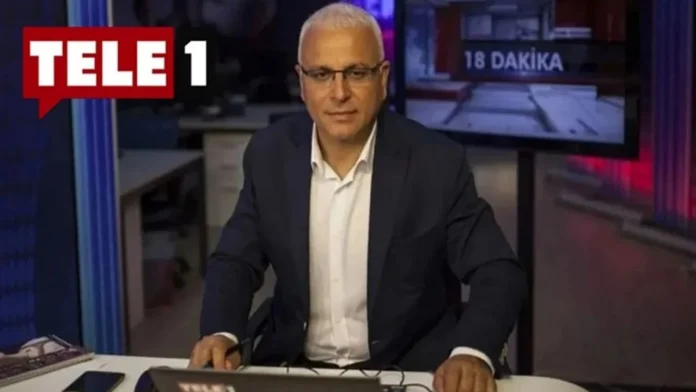
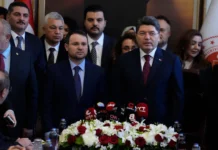
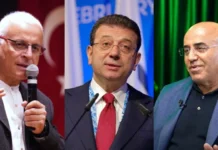
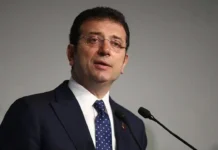
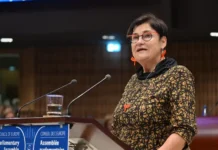

![[UPDATE] Journalist put under house arrest over reporting on opposition figures](https://stockholmcf.org/wp-content/uploads/2025/09/Furkan-Karabay-218x150.webp)







